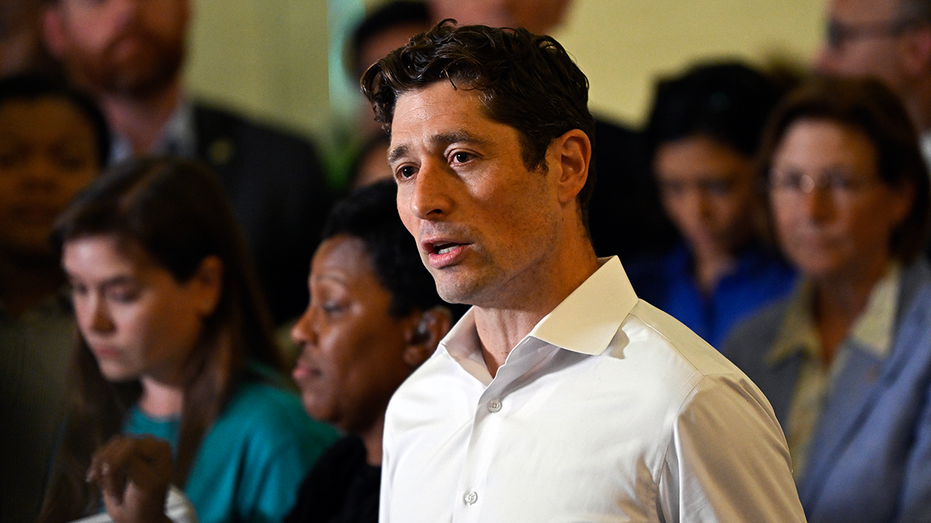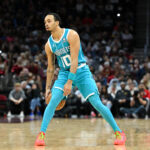Minneapolis mayor’s race advances to ranked choice voting after no candidate reaches 50%

The Minneapolis mayor’s race will advance to ranked choice voting after none of the candidates received at least 50% of the vote in Tuesday’s election, the Associated Press has reported. Minneapolis allows voters to rank up to three candidates in its municipal races. The field for mayor included more than a dozen candidates.
As of 10:41 p.m. EST, Jacob Frey and Omar Fateh had received the most first-choice votes. Fateh made waves on the national political stage this year, drawing comparisons to Zohran Mamdani’s mayoral campaign in New York City, after The Minnesota Star Tribune dubbed him the “Mamdani of Minneapolis.”
The 35-year-old son of Somali immigrants, who became the first Somali-American elected to the Minnesota state Senate in 2020, challenged incumbent Frey head-on this year, criticizing the comparatively moderate Democrat for failing to “meet the needs of our changing society.”
DFL Endorsement Controversy
Fateh was endorsed by Minnesota’s Democratic Farmer-Labor (DFL) party this summer, marking the first endorsement of a Minneapolis mayoral candidate in 16 years. However, DFL Chairman Chirard Carlbom rescinded the coveted endorsement a month later.
“I am incredibly honored to be the DFL endorsed candidate for Minneapolis Mayor. This endorsement is a message that Minneapolis residents are done with broken promises, vetoes, and politics as usual. It’s a mandate to build a city that works for all of us,” Fateh said on X in July.
“After a thoughtful and transparent review of the challenges, the Constitution, Bylaws & Rules Committee found substantial failures in the Minneapolis Convention’s voting process on July 19th, including an acknowledgment that a mayoral candidate was errantly eliminated from contention. As a result, the Constitution, Bylaws & Rules Committee has vacated the mayoral endorsement,” Carlbom explained the following month.
Progressive Momentum and Support
Despite the controversy, Fateh’s progressive campaign maintained momentum with the backing of the Twin Cities’ chapter of the Democratic Socialists of America and “Squad” member Rep. Ilhan Omar, D-Minn., who represents Minneapolis in the U.S. House of Representatives.
There were 15 mayoral candidates on the ballot Tuesday as the city did not hold a mayoral primary. While candidates can identify politically, city races in Minneapolis are officially nonpartisan.
In an attempt to consolidate support against the incumbent frontrunner Frey, Fateh urged his supporters to rank pastor DeWayne Davis and attorney Jazz Hampton as their second and third choices.
How Ranked Choice Voting Works in Minneapolis
In Minneapolis, if a candidate receives more than 50% of first-choice votes, that candidate wins outright. But if no one gets a majority, counting moves to additional rounds. After each round, the candidate with the fewest votes is eliminated, and those ballots are redistributed to the next-ranked candidate on each voter’s ballot. The process continues until one candidate has a majority and can be declared the winner.
According to The Associated Press, every mayoral race in Minneapolis since 2013 has gone to at least a second round of ranked-choice voting. Frey ousted an incumbent in 2017 after six rounds of tabulation. Then in 2021, Frey won re-election after two rounds.
Context and Endorsements
The mayor’s last race took the national stage on the heels of the murder of George Floyd by a police officer in Minneapolis in 2020, an incident that triggered national and international protests rejecting police brutality amid the COVID-19 pandemic.
Gov. Tim Walz, D-Minn., who was former Vice President Kamala Harris’ running mate last year and is up for re-election next year, and Sen. Amy Klobuchar, D-Minn., endorsed Frey’s campaign this year.







